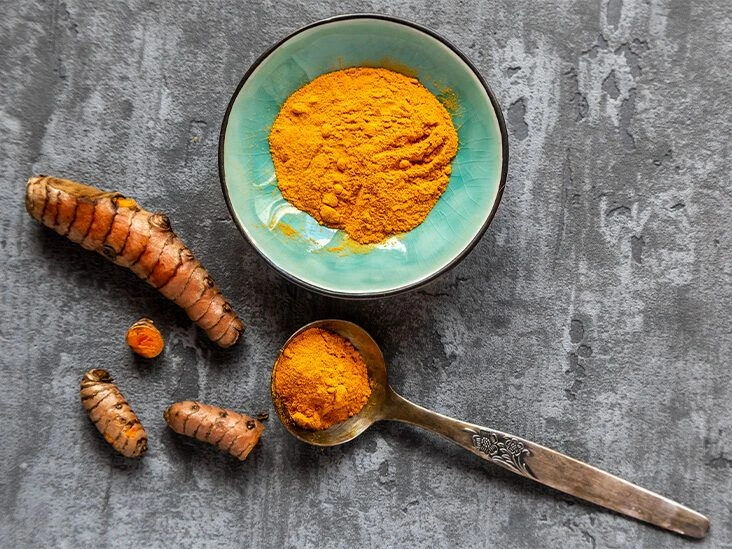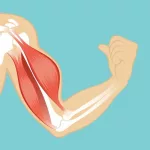Studies indicate that turmeric offers numerous possible advantages for both body and mind. Many of these effects are attributed to its principal active component, curcumin.
Turmeric is a spice from the ginger family that has been used in India for millennia as both a culinary ingredient and a medicinal remedy. Research has found that turmeric contains compounds with therapeutic properties.
These substances are known as curcuminoids, with curcumin being the most significant and the primary active element in turmeric.
Continue reading to discover what current science reveals about turmeric and curcumin and the health advantages they may offer.

1. Turmeric contains bioactive compounds
Turmeric includes multiple bioactive substances that may provide various benefits, such as supporting digestive health and the immune system.
Curcumin is fat-soluble, meaning it dissolves in fats or oils. For this reason, taking curcumin supplements with a meal rich in healthy fats can enhance absorption.
2. Curcumin is a natural anti-inflammatory compound
Curcumin is a bioactive molecule that may help reduce inflammation, although therapeutic effects often require relatively high doses.
Nevertheless, this suggests potential usefulness in counteracting inflammation seen in conditions such as rheumatoid arthritis.
3. Turmeric can increase the antioxidant capacity of the body
Oxidative damage is thought to contribute to aging and a range of diseases.
It involves free radicals — highly reactive species that can harm other cells.
Curcumin is a powerful antioxidant, owing to its chemical configuration, and can neutralize these reactive molecules.
More clinical trials are necessary to verify these advantages.
4. Curcumin can boost the development of new brain cells
Even in adulthood, neurons can form fresh connections, and in some brain regions they can proliferate and increase in number.
A key regulator of this process is brain-derived neurotrophic factor (BDNF), which influences memory and learning and is present in brain areas that govern appetite, drinking, and body weight.
Numerous common brain conditions have been associated with reduced BDNF, including depression and Alzheimer’s disease.
Research has shown that curcumin can raise brain BDNF levels. By doing so, it might help slow or even reverse various brain disorders and age-related declines in cognitive function.
However, additional studies are required to confirm these findings.
5. Curcumin may lower your risk of heart disease
Cardiovascular disease is the leading cause of death globally. Research indicates that curcumin might protect against multiple stages of heart disease development.
Other studies also report that curcumin can improve heart-related outcomes. Additionally, curcumin reduces inflammation and oxidative stress (as mentioned above), both of which contribute to heart disease.
6. Turmeric may help prevent cancer
Various cancer types appear to respond to curcumin supplementation.
Indeed, curcumin has been studied as a supportive agent in cancer therapy and has demonstrated effects on tumor growth and progression.
Research indicates it can:
- promote the death of malignant cells
- inhibit angiogenesis (formation of new blood vessels in tumors)
- reduce metastasis (spread of cancer)
Still, more research is necessary. It’s crucial to understand that curcumin is not a cure for cancer, and supplements should not replace standard medical treatments.
7. Curcumin may be useful in treating Alzheimer’s disease
Alzheimer’s disease is the most prevalent type of dementia and may account for a significant portion of dementia cases.
Inflammation and oxidative damage are known contributors to Alzheimer’s, and curcumin has demonstrated activity against both processes.
That said, whether curcumin can slow or reverse Alzheimer’s progression in humans remains uncertain and requires further investigation.
8. Arthritis patients respond well to curcumin supplements
There are multiple forms of arthritis, most involving joint inflammation.
In a study of individuals with osteoarthritis, curcumin appeared more effective than a placebo for pain relief, and other research has found its effects comparable to those of non-steroidal anti-inflammatory drugs (NSAIDs).
Nonetheless, more research is needed to determine if curcumin can actually replace such medications for treating arthritis-related inflammation and pain.
9. Curcumin has benefits against depression
Curcumin has shown potential in alleviating mood disorders. Its beneficial actions in the brain include enhancing neurotransmitters like serotonin and dopamine, reducing inflammation, and promoting neuronal plasticity. This combination suggests the herb may act as an effective antidepressant.
10. Curcumin may help delay aging and fight age-related chronic diseases
If curcumin can genuinely aid in preventing heart disease, cancer, and Alzheimer’s, it could also offer longevity benefits.
Since oxidative stress and inflammation are central to aging, curcumin’s effects may extend beyond disease prevention. However, more research is necessary to fully understand these potential anti-aging impacts.
Frequently asked questions
Is it good to take turmeric every day?
Given turmeric’s range of health-promoting properties, daily use can be reasonable. Staying at or below 10 g per day is unlikely to cause adverse effects such as diarrhea, constipation, or vomiting.
Who shouldn’t take turmeric?
Pregnant or breastfeeding individuals, people with gallbladder or kidney issues, those with bleeding disorders, or anyone with iron deficiency should be cautious with turmeric. If you have any of these conditions, consult a healthcare professional before using turmeric.

The bottom line
Turmeric — particularly its most active constituent, curcumin — offers several promising health benefits, including potential improvements in heart health and roles in preventing Alzheimer’s and cancer.
It acts as a strong anti-inflammatory and antioxidant and may help ease symptoms of depression and arthritis.
While these effects are promising, they are currently constrained by curcumin’s low bioavailability, and further research is required to clarify its precise benefits.


















Leave a Reply
You must be logged in to post a comment.